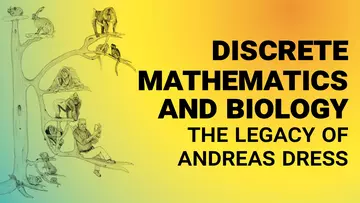Lorentzian polynomials and matroids over triangular hyperfields
- Matt Baker (Georgia Tech, USA)
Abstract
Oleg Viro introduced a family $\{ {\mathbb T}_p \}_{p \geq 0}$ of hyperfields which underlies the process of Maslov dequantization, with ${\mathbb T}_0$ being the tropical hyperfield. There is also a notion of "matroids with coefficients" due to Dress and Wenzel, which allows one to define the notion of ${\mathbb T}_p$-matroid for all $p$ $\geq 0$, with ${\mathbb T}_0$-matroids being the same thing as valuated matroids. We establish an intriguing connection between Lorentzian polynomials, as defined by Brändén and Huh, and ${\mathbb T}_p$-matroids. In particular, we will sketch a proof of the following theorem: For every integer $n$ $\geq 1$ and every matroid $M$ of rank $r$ on $\{ 1,\ldots n \}$, there is a $p>0$ such that ${\mathbb T}_p(M) \subseteq L_M \subseteq {\mathbb T}_2(M)$ inside ${\mathbb R \mathbb P}^{N-1}$, where $N$ = ${n \choose r}$, ${\mathbb T}_p(M)$ denotes the space of ${\mathbb T}_p$-matroids with support $M$, and $L_M$ denotes the space of Lorentzian polynomials with support $M$. Moreover, the dimensions of both $L_M$ and ${\mathbb T}_p(M)$ for $p>0$ are equal to the dimension of the Tutte group of $M$, an algebraic invariant introduced by Dress and Wenzel. We also present examples showing that the value of p in the theorem necessarily depends on $n$. A key ingredient in the proof is the connection between valuated matroids with support $U_{2,n}$ and phylogenetic trees with n leaves, which Dress made use of in both his earlier work on matroid theory and his later work on mathematical biology. This is joint work with June Huh, Mario Kummer, and Oliver Lorscheid.
